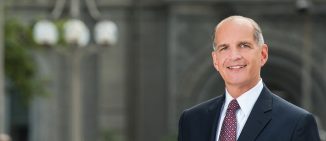Effective November 1, 2015: New Jersey Expands Scope of Prescription Monitoring Program
In July, New Jersey Governor Chris Christie signed legislation that expands the access, registration, and utilization of the New Jersey Prescription Monitoring Program (NJPMP). The legislation, Senate Bill 1998 (S-1998), is slated to take effect on November 1, 2015. S-1998 is part of a larger effort in New Jersey to fight prescription drug abuse. Governor Christie said that he hopes the new legislation will inspire healthcare professionals, treatment providers, law enforcement, and members of the public to work together and be part of “a solution that fights the stigma of addiction, saves lives, and helps rebuild families.”
NJPMP is an online database that tracks the sale of prescription drugs that are classified as controlled dangerous substances. Prescribers can use the database to identify patients who have engaged in “doctor shopping” or the practice of visiting multiple physicians in order to deceptively obtain more prescription drugs than any one doctor would prescribe.
S-1998 requires prescribers and pharmacists to register for NJPMP access. Physicians are then required to utilize the NJPMP under specific circumstances. For example, physicians must check the program when a patient returns for a second refill on medication. In addition, physicians must consult the database before they prescribe a Schedule II controlled substance to a new patient, to a patient for acute and chronic pain, or to a patient who could reasonably be seeking the prescription for a reason besides the treatment of a medical condition. The new law requires that as of September 1, 2015, pharmacists report information to the NJPMP on a daily basis. S-1998 requires that they report no later than one day after dispensing a controlled substance.
The Division of Civil Affairs is responsible for implementing the new law. In an effort to increase the utility of the program, the Division has streamlined the registration process to grant automatic enrollment to prescribers who renew their state registration to prescribe and dispense controlled substances. Furthermore, the Division launched an online application that allows physicians and pharmacists to access the NJPMP via smartphones and tablets.
Although S-1998 takes steps to strengthen the NJPMP, some critics argue that it does not go far enough. New Jersey remains one of 27 states where monitoring is not required every time a physician writes a prescription for a drug that has the potential to be abused. However, Senator Joseph Vitale, one of the bill’s principal drafters, argues that the bill is intended to be a compromise. He explains that the bill was drafted to tackle prescription drug abuse in New Jersey, but also to prevent unnecessary obstacles for individuals who suffer from chronic pain issues.
We will continue to monitor the implementation of S-1998. Check back with the Health Law Gurus™ blog for updates.
To read the press release, click here.




